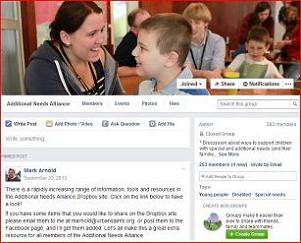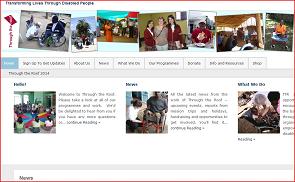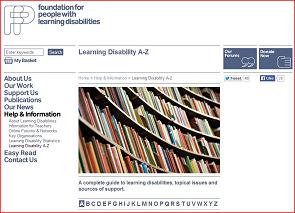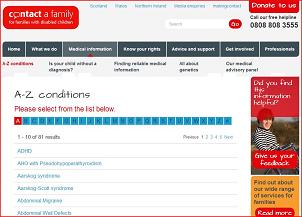SPECIAL NEEDS
There are a whole range of special needs that children may have – some permanent such as cerebral palsy, visual impairment or autism and others temporary such as a broken leg. In the UK we all have a legal requirement to comply with the Disability Discrimination Act but often we wait for children with specific needs to join our groups before we think about addressing those needs.
Shouldn’t we be making more effort to show that we are ready to welcome any child into our groups by having clear strategies in place before the need arises? Every church won’t be able to achieve everything on the following list, but we ought to review our provision regularly and aspire to achieve:
- Wheelchair access, ramps, hearing loops and toilet access for all forms of disability – not just for the main church but for all halls and rooms where children meet.
- Training for all children’s workers in disability issues (including some trained in sign language) so they can encourage and enable children with disability to integrate into children’s groups and activities.
- Respite care provision – people trained to be buddies to children with special needs, sitting with them in church or spending time with them in a sensory room set up for safe play or exploration.
Parents will always be your best source of information about the specific needs of individual children but there are web sites which provide basic information about particular disabilities.
Making church accessible to all
(Tony Phelps-Jones, BRF)
2015 conference recommendation by Lynn McCann
Most churches are largely unaware of the presence of people with learning disabilities in their community and their needs; unprepared to welcome people with learning disabilities and ill-equipped to teach and disciple them in the Christian faith; and unaware of how much including people with learning disabilities will enrich the church experience for all church members. This book addresses all these issues.
Top tips on welcoming special children
(Denise Abrahall, Scripture Union)
2011 conference recommendation by Kay Morgan-Gurr
2010 conference recommendation by Alice Langtree
A guide for anyone helping children with special needs to know God, a challenging but deeply rewarding ministry. Containing stories from group leaders and parents, the book examines what we mean by special needs and what the Bible says on the subject. With practical ideas for welcoming special children into churches and children’s groups this book also explores the implications of the Disability Discrimination Act for churches.
Special children, special needs
(Simon Bass, CHP)
This handy guide provides information on how to integrate children with special needs into your church and its children’s programmes and activities. It offers advice on: the requirements of the Disability Discrimination Act 1995; special needs etiquette and appropriate language; child protection and safe recruitment; specific advice on disabilities and medical conditions; supporting families of special needs children; practical issues; and helpful organizations and resources.
Through the roof
An organisation that seeks to provide the opportunity for people to encounter Jesus Christ; remove the barriers that disable people through equipping organisations and churches and empowering disabled and non-disabled individuals; provide support, fellowship and resources for disabled people and their families. Key programmes include Churches Inc – equipping churches and organisations to enable disabled people to be fully involved; Disabled Christians Fellowship – providing support and fellowship for disabled people and their families and Integr8 – empowering young disabled people to be fully involved in their church.
Learning disabilities
Foundation for People with Learning Disabilities has information on a variety of conditions that will cause children to have problems.
Specific disorders include:
Autistic spectrum disorders Children with ASD will experience problems with social interaction and social communication. They like routine and to know the timetable for a session. Keep your communication clear and to the point (they will often interpret things literally) and think about how you use humour. Children with ASD are often visual learners. Additional information can be found on The National Autistic Society web site.
Down’s Syndrome This affects about one child in 1000 in the UK. All will experience some degree of learning disability. They will progress in most areas but at a slower pace than average. Characteristically these children will often have hearing difficulties and will find it hard to learn by listening but they learn visually, may be good readers and are often good at communicating using their bodies. They are often good at social interaction and emotional understanding. Additional information can be found on the Downs Syndrome web site.
Dyslexia There is a helpful list of characteristics weaknesses that may be apparent in children who are dyslexic on the British Dyslexia Association web site.
Medical disabilities
Contact a Family has a comprehensive A-Z list of information on over 1200 disabilities, their conditions and support groups.
Specific disorders include:
Cerebral Palsy A wide-ranging condition where the part of the brain that controls muscles and movement is damaged. It affects 1 in 400 children in the UK. Associated conditions which may, or may not, be present include epilepsy, sensory impairment, speech and language difficulties and learning difficulties. Because every child with cerebral palsy will have different needs you should communicate with the family about a child’s specific needs. Additional information can be found on the Scope web site.
Deafness There are 35,000 children and young people registered as having hearing impairment in the UK, that’s 1-2 per 1,000. 50,000 deaf people in the UK use BSL (British Sign Language) to communicate. If you want to learn BSL there are courses and online videos available through Action on Hearing Loss. There is also a BSL Basics web site and a book of signs for Christian worship can be obtained from Signalong.
Epilepsy This is an individual condition that varies between sufferers. A child may never have an attack whilst they are in your care but you should find out from parents any particular conditions or events that may trigger a seizure, how long seizures last and what they look like, what first aid is appropriate, what care the child will require after the seizure and whether emergency medication has been prescribed and if so, how it should be administered. Additional information can be found on the Epilepsy Action web site.
Multi-sensory impairment Deafblindness and other forms of multi-sensory impairment are rare, affecting about 3 children in 10,000. Learning takes longer for these children, not because they have cognitive learning difficulties, but because they receive poor quality information through their senses. Relationships take longer to form and these children have a need for consistency both in their physical environment and in the way you give cues. More information can be found on the Sense web site.
Visual Impairment Information can be found on the RNIB web site. Torch Trust is a UK Christian charity which produces books (including a handful of titles for children) and Bibles in Braille, giant print and audio versions.
Communication strategies for an inclusive church
(Lynn McCann, 2015 conference)
Learn about barriers that children with learning disabilities may have and how we can make the Bible and worship more accessible through practical and inventive communication strategies.
Delegate rating 10/10
It takes a child to train a church
(Mark Arnold and Kay Morgan-Gurr, 2014 conference)
Resourcing the church to reach children with additional needs.
Delegate rating 9/10
‘Walk a mile in my shoes.’
(Mark Arnold and Kay Morgan-Gurr, 2014 conference)
Seeing church through the eyes of various children with additional needs.
Delegate rating 8/10












